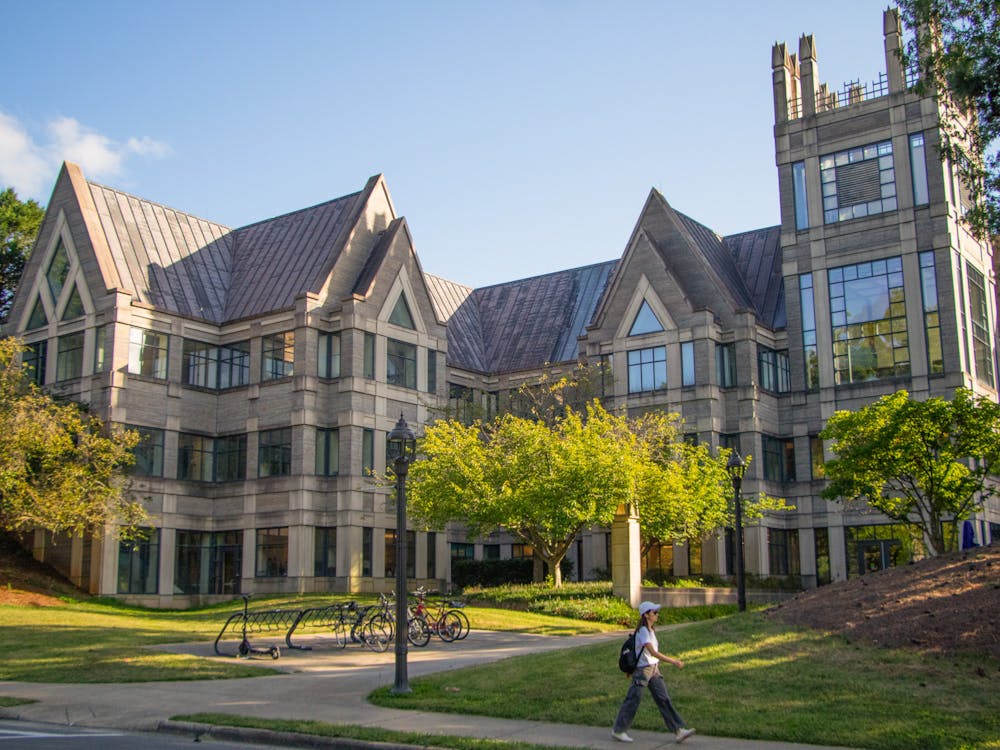Duke announced two climate change initiatives in the Sanford School of Public Policy and School of Medicine as a part of the University’s Climate Commitment.
The University received $1 million from HPS Investment Partners and the Kapnick Foundation to fund the Climate Dialogue and Innovation Initiative: Southeast Asia and the World in the Sanford School, and Associate Professor of Medicine Robert Tighe was named to lead the School of Medicine’s research strategy on the impact of the climate crisis on health.
Climate Dialogue and Innovation Initiative
The Sanford School’s two-year climate initiative — announced in October — is aimed at developing innovative climate solutions in Southeast Asia, one of the world’s most economically successful, yet climate change-vulnerable regions.
The collaborative effort between researchers at Duke Center for International Development, research institutions in Singapore and around the region of Southeast Asia, and Duke Kunshan University is geared towards achieving four main objectives: conducting research that identifies promising climate approaches and startups in the region, creating data visualizations about climate innovations and related financial flows, providing innovation awards to climate entrepreneurs and hosting a conference to showcase the initiative’s findings.
Jonathan Stromseth, professor of the practice in the Sanford School and expert on U.S.-Asia relations, is the project lead.
According to Stromseth, the data visualization aspect of the initiative will be instrumental in measuring what the “changes and fluctuations of climate finance generally in the region [are], … where are they going and how might that change over the two or three years of this project.”
He also noted that he believes the path forward for climate finance is the “blended finance approach,” which combines different types of capital to fund projects and involves both the private and public sector.
“In the climate world — especially in the Global South — often the World Bank or other public finance institutions provide some support to help [the] private sector ‘de-risk’ in their provision of financing,” Stromseth said in explaining the blended finance approach.
Stromseth expressed optimism that if the two-year initiative is successful, it could be the starting point of a longer term effort.
“One … of our goals for the project is to share what we've learned in Southeast Asia about promising innovations with other regions,” he said. “We imagine that if the project is successful, the model could possibly be replicated — or the program could be expanded beyond — the 11 countries of Southeast Asia.”
Impact of climate change on health
As of March, Tighe — guided by his background in researching the effects of air pollution on human health —- has been leading the School of Medicine's research strategy on the impact of the climate crisis on health
According to Tighe, he was assigned to identify areas in climate and health research where Duke could make a “positive impact on communities,” particularly those that are more vulnerable or disadvantaged.
“These are things that particularly communities that are underprivileged in general and already are more vulnerable at [the] baseline and the impacts of climate change are only [making it] worse,” Tighe said, adding that he is looking to identify areas where Duke has the “expertise and skills” or is “actively doing research” that can be “accentuated or developed” to serve those communities.
He added that he hopes that this project will “develop the next generation of researchers,” who are excited about science or not, “to get excited” and feel like there are spaces for them to make an impact.
Tighe also noted the importance for the broader Duke community to be involved with the climate effort, and emphasized that the effort — although led by the School of Medicine — requires a campus-wide collaboration.
“This isn't something that's just limited to the School of Medicine. This is certainly something that is important to many other faculty across campus,” he said. “Ultimately — to really be impactful — [it] requires collaboration across campus,” he said. “One of the things that I'm hopeful for is that [this] really drive[s] a greater focus on interdisciplinary efforts across campus.”
Get The Chronicle straight to your inbox
Signup for our weekly newsletter. Cancel at any time.
Chloe Joy Chang is a Trinity sophomore and a staff reporter for the news department.

